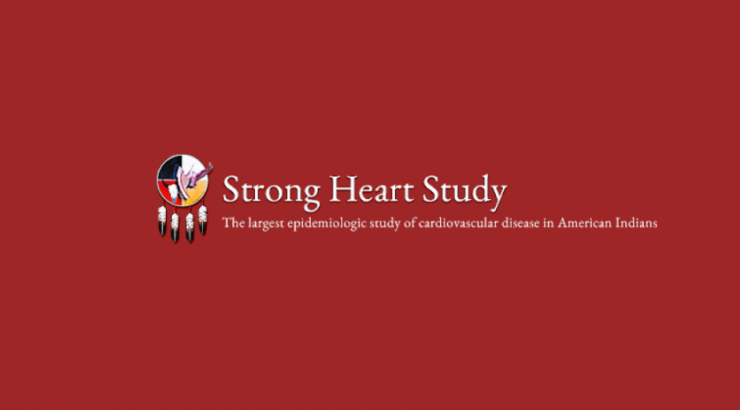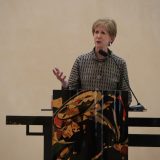
Dr. Justin de Leon awarded $30,000 from Strong Heart Study
April 16, 2024
Dr. Justin de Leon (Ethnic Studies) was awarded a $30,000 Strongheart Tribal Approach to Research (STAR) Projects grant from the Strong Heart Study (SHS) at the University of Oklahoma. SHS is a study of cardiovascular disease and its risk factors among American Indian men and women and is the largest epidemiologic study of American Indians ever undertaken.
de Leon’s qualitative study seeks to understand how storytelling (Indigenous and community-based) can serve as a therapeutic tool to nurture mental health and strengthen cultural identity.
“The STAR grant has provided a meaningful opportunity to explore the impact of storytelling practices on mental health within the Native American Lakota community of Eagle Butte on the Cheyenne River Sioux Reservation, SD.
In collaboration with Lakota academics and storytellers Lennixx Bad Moccasin (University of Minnesota) and Clementine Bordeaux (UC Riverside), this grant is an opportunity to situate literature on storytelling and mental health with an Indigenous / Lakota cultural understanding.
Programming includes the development of a screenplay, as well as a community table reading and storytelling workshops.” Dr. Justin deLeon
 de Leon will plan and host two community-based workshops in Eagle Butte, South Dakota, that will include academically informed programming, story circles, and individual and focus group interviews. These events will be a mixture of community learning and sharing, providing a venue for the researchers to collect stories, share stories, and learn from the lived experiences of community members. In addition to Dr. de Leon, the project team includes Lennixx Bad Moccasin (Cheyenne River Sioux Tribe, University of Minnesota), Dr. Clementine Bordeaux (Rosebud Sioux Tribe, UCLA / UC Riverside), and Dana Dupris (Cheyenne River Sioux Tribe).
de Leon will plan and host two community-based workshops in Eagle Butte, South Dakota, that will include academically informed programming, story circles, and individual and focus group interviews. These events will be a mixture of community learning and sharing, providing a venue for the researchers to collect stories, share stories, and learn from the lived experiences of community members. In addition to Dr. de Leon, the project team includes Lennixx Bad Moccasin (Cheyenne River Sioux Tribe, University of Minnesota), Dr. Clementine Bordeaux (Rosebud Sioux Tribe, UCLA / UC Riverside), and Dana Dupris (Cheyenne River Sioux Tribe).
The issue of mental health among Indigenous youth and young adults continues to deeply affect communities, exacerbated by a combination of factors, including the ongoing, unidentified impacts of the COVID-19 pandemic and shared historical trauma. The enduring effects of historical trauma have left profound imprints on communities, impacting the well-being and health of generations. Mental health struggles are intricately linked to cultural identity, the erasure of which was a central cause of historical trauma. This complexity underscores the need for an Indigenous-inspired approach and solution.
In many Indigenous communities, the practice of storytelling holds a central place in healing traditions, which differs from Western-based approaches to health and healing. Stories have the capacity to convey information with greater depth, complexity, and nuance.
This project offers a solution centered around fostering individual and community expression through the creative medium of storytelling as a therapeutic tool. This approach offers pathways to healing, community engagement, unity, and expression through a multifaceted approach to addressing mental health challenges and promoting cultural identity by emphasizing storytelling within an Indigenous context.
Through storytelling workshops, community dialogues, and skill-building activities, this project intends to create a space that promotes healing, reinforces cultural identity, encourages community dialogue, and ultimately contributes to improved mental health outcomes.

